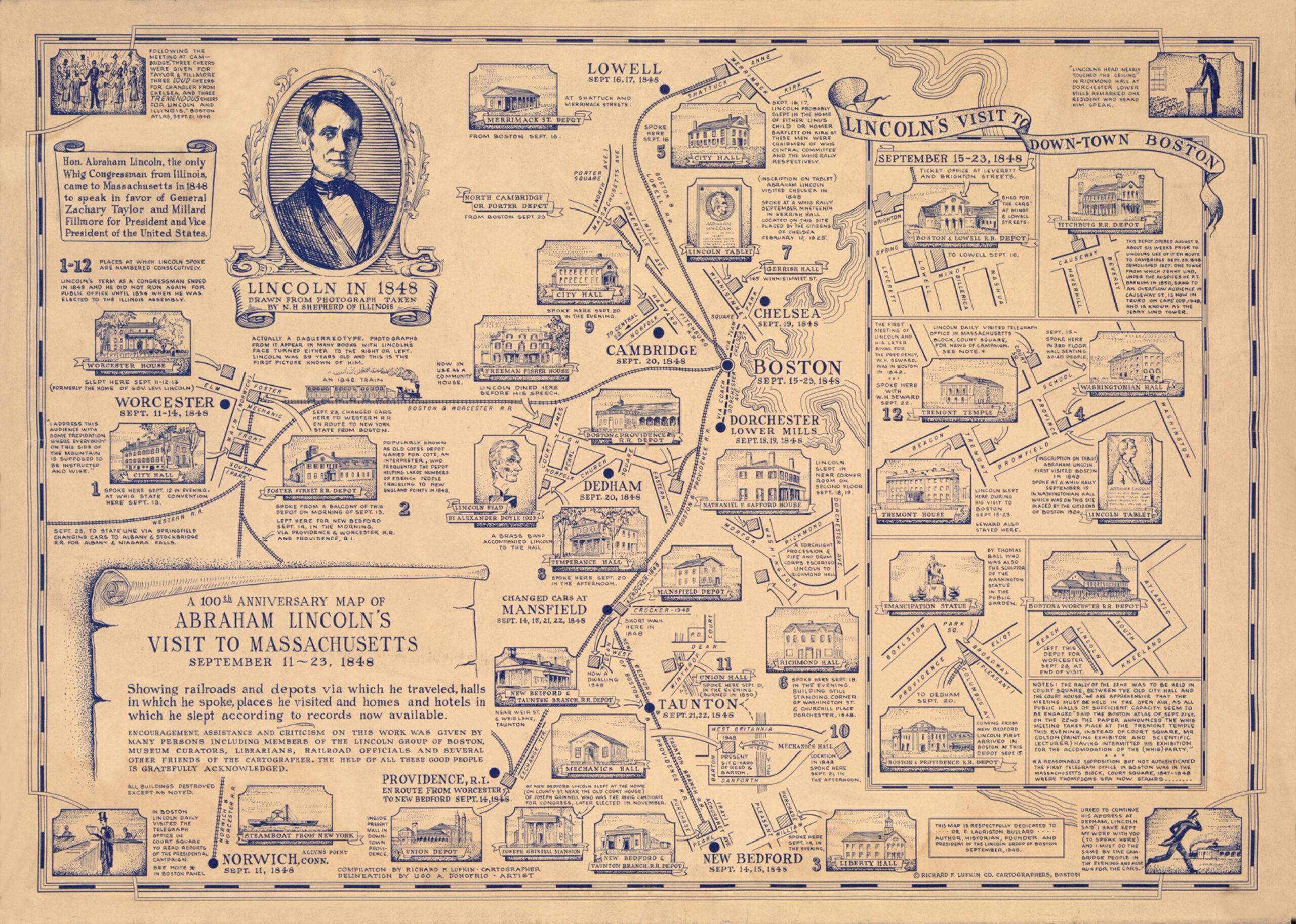Lincoln's travels through Mansfield
At about 12:30 on the afternoon of Sept. 14, 1848, a treetop-tall, clean- shaven, bushy-haired man got off a Boston-bound train at Mansfield depot. The man was a 39-year-old Whig politician from Illinois, serving the final year of his term as Congressman. He was campaigning in Massachusetts and Rhode Island for presidential candidate Zachary Taylor, and had just come from making a speech in Providence.
His name was Abraham Lincoln.
The name meant nothing to anyone in Mansfield. That included station agent James Greene. The agent, who kept a close eye on arriving passengers, watched from his doorway as the tall stranger tromped across the plank platform, a carpetbag swinging from his big hand.
Mansfield’s passenger house, as it was called, stood exactly on the site of the present MBTA commuter station. There the similarity ended. It was a two-and-a-half story white-painted clapboard structure of Greek Revival style. (It still stands in Mansfield, but on a different spot.) Green and his family lived upstairs.
Jim Greene, age 42, was more than a railroad agent. He had charge of the telegraph installed in the depot seven months before. He also ran a general store in the building, and served lunches and cider made from his own apples. Like all who came in daily contact with the public, he was a practiced judge of men. But he didn’t quite know what to make of the new arrival. Lincoln quickly solved that little problem. He asked Greene for a ticket to New Bedford.
Probably the response went something like, “Sure, mister. That’ll be 90 cents. Takes an hour and five minutes, with four stops. You comin’ back today?”
Lincoln said he’d be back tomorrow. He had a speaking date in Boston.
Nobody knows whether Abe Lincoln filled his 20-minute wait at Mansfield by partaking of Jim Greene’s luncheon and cider. But I can picture Greene grinning in amusement as the stranger after boarding the New Bedford train behind the depot, folded his gangly six-feet-three-and-a-half inches into a seat designed for the 19th century man of five-feet-seven.
Someday they’d have to make train seats bigger!
During his 12-day New England tour, Lincoln gave political speeches in Worcester, Providence, New Bedford, Boston, Lowell, Dedham, Cambridge, Dorchester (where Democrats heaved sticks and stones at him) and Taunton, traveling by train between stops. The Taunton address, on Sept. 21, came last; from Boston he took a train back to Mansfield, thence to Taunton, where he spoke in Union Hall, returning via Mansfield to Boston the following day.
I don’t know what Jim Greene’s political persuasion was but by the time Abraham Lincoln passed through his station four times Greene must have felt the tall Whig Congressman from Illinois, future 16th president of the United States, was getting to be an old friend.
